The electric cars (EV) market is experiencing a global surge, with sales rising 13% in 2024. However, a concerning trend is emerging in Europe, where sales dipped by 7% compared to the previous year. This raises the question: Is Europe falling behind in the electric car race?
Global Electric Vehicle Sales Boom
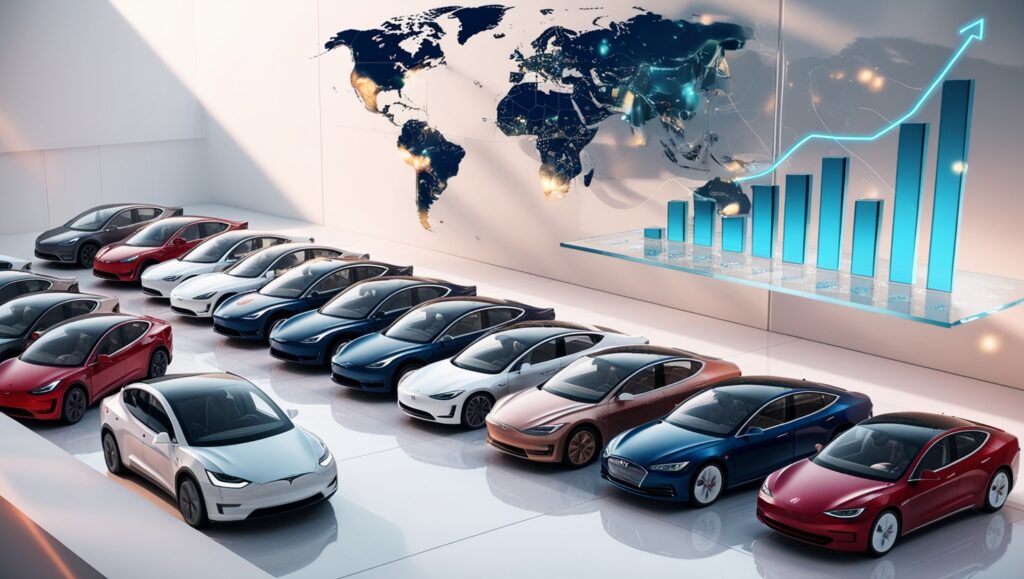
The global electric vehicle market is on fire. Consumers are increasingly opting for cleaner and more sustainable transportation options. This trend is driven by several factors, including:
1. Rising fuel costs: With traditional gasoline and diesel prices reaching record highs, top electric vehicles become a more attractive proposition due to lower running costs.
2. Government incentives: Many countries offer generous tax breaks and subsidies for purchasing electric vehicles.
3. Technological advancements: Battery range is improving, charging times are decreasing, and electric vehicles are becoming more powerful and feature-rich.
4. Environmental concerns: As climate change concerns escalate, consumers are increasingly looking for ways to reduce their carbon footprint.
These factors have contributed to a significant rise in electric vehicle sales across the globe. Leading markets like China and the United States continue to witness strong growth, with other regions like India and Southeast Asia also showing promising signs.
Europe’s Electric Car Conundrum

While the global market thrives, Europe’s electric car scene paints a different picture. The 7% dip in sales compared to 2023 is a cause for concern. Several potential factors could be contributing to this slowdown:
1. Economic slowdown: Europe is facing a potential economic downturn, which might lead to consumers delaying big-ticket purchases like electric vehicles.
2. Supply chain disruptions: The ongoing global supply chain issues are impacting the automotive industry, including the availability of key EV components like batteries.
3. High upfront costs: Despite government incentives, electric vehicles often have a higher upfront cost compared to gasoline-powered counterparts. This can be a barrier for some consumers.
4. Charging infrastructure concerns: While Europe has made strides in developing its charging infrastructure, some regions still lack a sufficient network of charging stations, leading to “range anxiety” among potential buyers.
Top Electric Vehicles of 2024
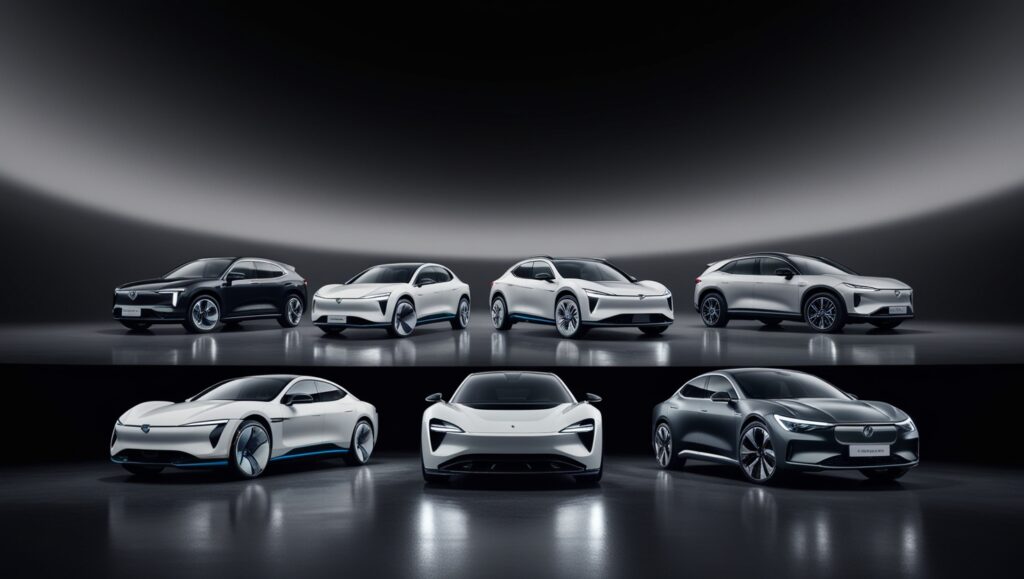
Despite the slowdown, Europe still boasts some of the most popular and innovative electric vehicles on the market. Here are a few top contenders:
1. Tesla Model 3: This perennial favorite remains a top seller in Europe, offering a combination of performance, range, and brand recognition.
2. Volkswagen ID.4: This German-made SUV provides ample space and practicality for families, making it a strong competitor in the growing electric SUV segment.
3. Renault Zoe: This affordable and efficient hatchback is a popular choice for city driving and continues to be a strong seller in Europe.
4. Hyundai Kona Electric: This stylish and feature-rich crossover offers a compelling mix of value and performance, attracting a wider range of buyers.
5. Nissan Leaf: A pioneer in the electric car market, the Nissan Leaf remains a popular choice for budget-conscious consumers seeking a reliable EV option.
The Road Ahead for Europe’s Electric Cars
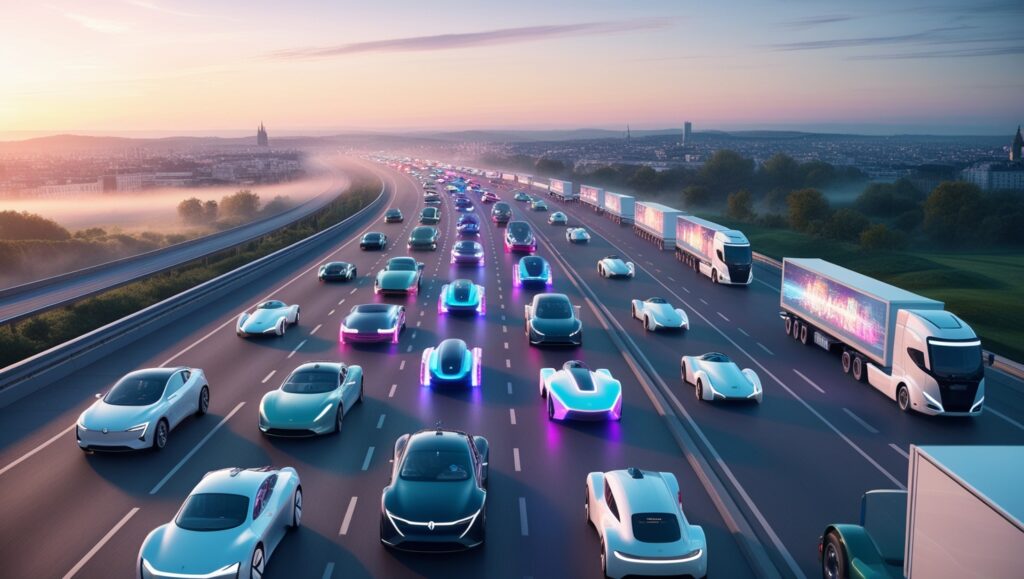
While Europe faces some headwinds in the electric car market, its future remains promising. Several factors could contribute to a rebound:
1. Continued government support: Policymakers across Europe are expected to continue offering incentives and support for electric vehicles.
2. Battery technology advancements: With ongoing research and development, battery costs are expected to decrease, making electric vehicles more affordable.
3. Expansion of charging infrastructure: Governments and private companies are investing heavily in expanding charging infrastructure, addressing range anxiety concerns.
4. Increasing competition: With more established automakers joining the fray alongside innovative startups, consumers will benefit from a wider range of electric vehicle options at competitive prices.
Electric Car Price Trends
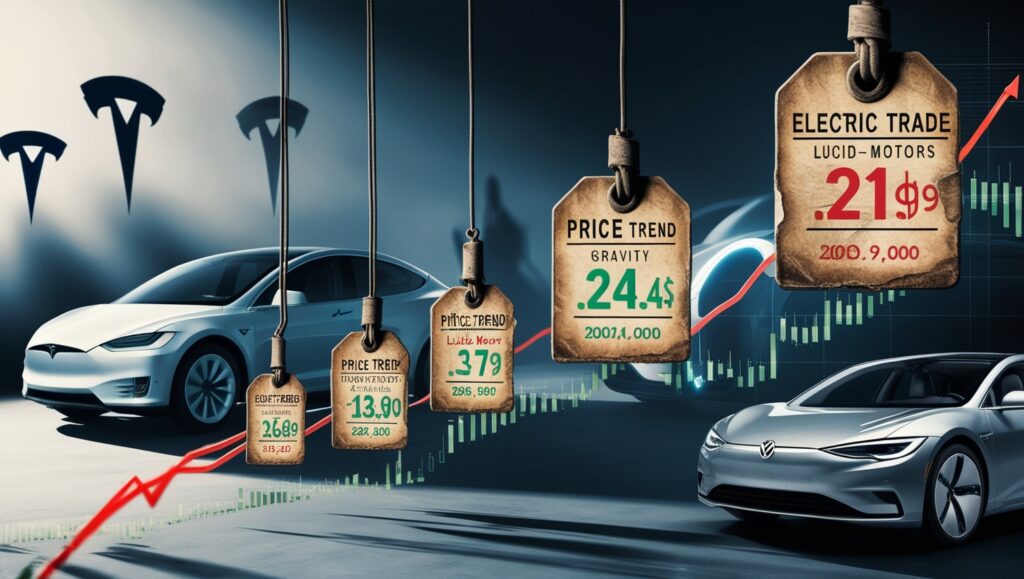
The price of electric cars is expected to continue decreasing in the coming years, making them a more attractive proposition for mainstream consumers. This trend will be driven by factors like:
1. Economies of scale: As production volumes increase, the cost of manufacturing electric vehicles will naturally decrease.
2. Battery cost reduction: Advances in battery technology will lead to lower battery costs, the single most expensive component of an electric vehicle.
3. More affordable models: With increased competition, more affordable electric car options are expected to hit the market, catering to a wider range of budgets.
Navigating the Electric Car Landscape in Europe
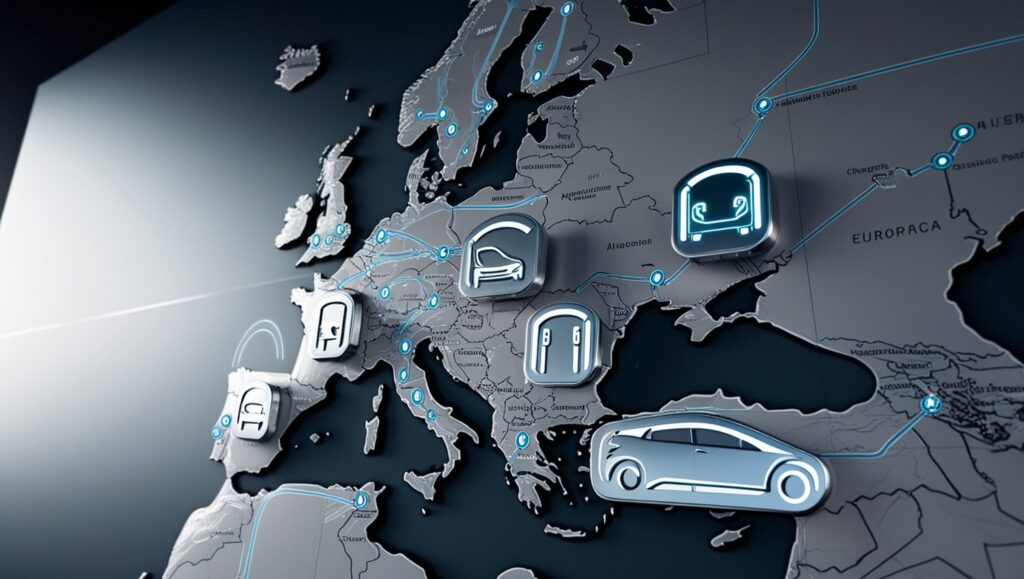
While Europe grapples with its EV slowdown, some aspects paint a more optimistic picture:
1. Strong Hybrid Market: Europe continues to be a leader in the hybrid vehicle market. These gasoline-electric hybrids offer a stepping stone for consumers hesitant to fully commit to electric vehicles, potentially bridging the gap and nurturing future EV sales.
2. Focus on Sustainability: Many European consumers prioritize eco-friendly options. This focus on sustainability could translate into a stronger EV market as concerns about climate change continue to rise.
3. Premium EV Segment Thriving: Despite the overall dip, the premium segment of the European EV market remains strong. Luxury brands like Porsche, Audi, and Jaguar are witnessing healthy demand for their high-performance electric vehicles.
Finding the Right Electric Car for You
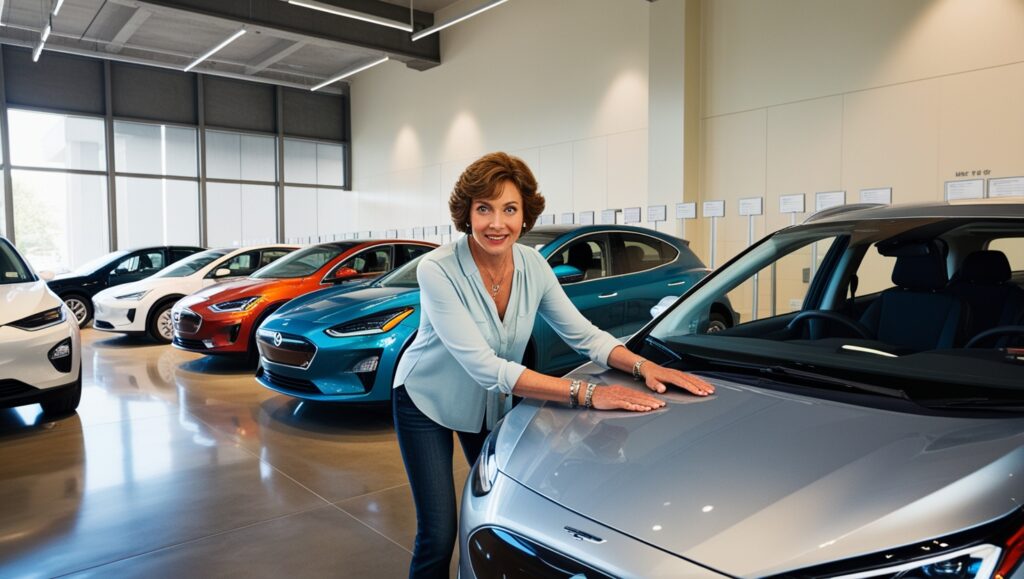
With so many options on the market, choosing the right electric vehicle can be overwhelming. Here are some factors to consider:
1. Budget: Consider the upfront cost of the car, factoring in potential government incentives.
2. Range: Think about your typical driving needs and choose an electric vehicle with a sufficient range to avoid range anxiety.
3. Charging: Assess your charging options at home and work and ensure there are enough public charging stations in your area.
4. Features and Technology: Consider the features and technology that are important to you, such as driver assistance systems, infotainment systems, and connectivity options.
Looking Beyond Sales Figures
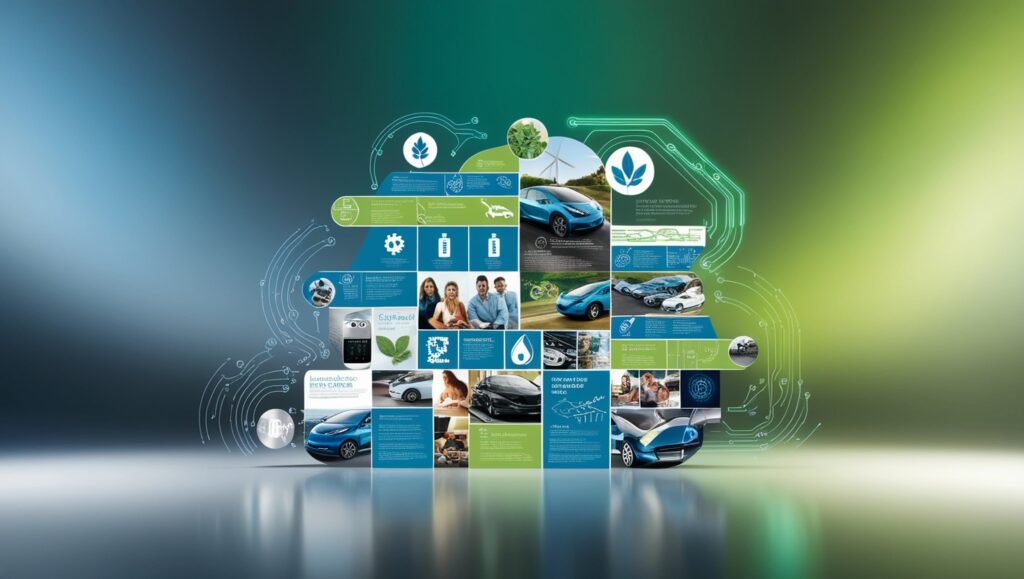
While sales figures offer a snapshot of the market, they don’t tell the whole story. Europe remains a significant player in the EV ecosystem:
1. Battery Powerhouse: Europe is home to several leading battery manufacturers, a crucial element in the electric vehicle supply chain.
2. Innovation Hub: European research centers and universities are at the forefront of electric vehicle technology development.
3. Strong Infrastructure Base: While improvements are needed, Europe already boasts a robust infrastructure for electric vehicles, including a network of charging stations and research facilities.
The Future of Electric Cars in Europe
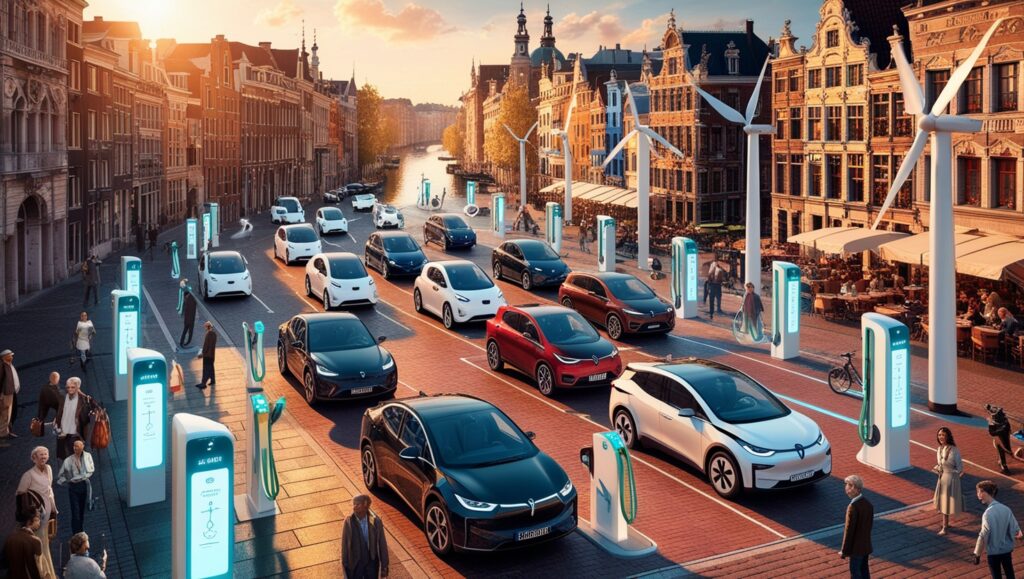
Despite the current slowdown, Europe has the potential to become a leader in the electric cars revolution. Continued government support, technological advancements, and infrastructure expansion will all play a crucial role in driving future growth. European consumers’ focus on sustainability and eco-friendly choices could also fuel the adoption of electric vehicles. While there are challenges to overcome, the future of electric cars in Europe remains bright.

I was suggested this web site by my cousin Im not sure whether this post is written by him as no one else know such detailed about my trouble You are incredible Thanks
Simply desire to say your article is as surprising The clearness in your post is simply excellent and i could assume you are an expert on this subject Fine with your permission let me to grab your feed to keep up to date with forthcoming post Thanks a million and please carry on the gratifying work.